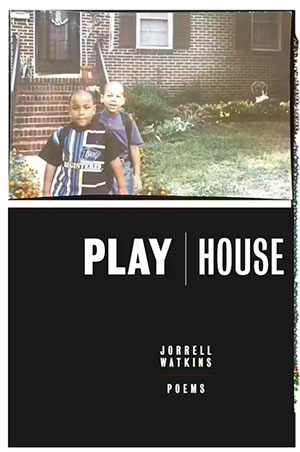Deconstructing and Reconstructing the Meaning Behind Words, Part 2

From the Craft of Reading to The Craft of Writing
To be a successful storyteller, you need to be comfortable with the craft elements used in various works of fiction, creative nonfiction and poetry. Key elements—such as imagery, voice and point of view, plot and conflict, and truth—come alive as you hone your craft. Building on your skills in reading as a writer, the Certificate Program in Creative Writing’s The Craft of Writing course—another one of three required for the program—develops these skills.
For published poet Jorrell Watkins, being an instructor for The Craft of Writing also allows him to continue to grow in his craft along with his students. What they read in class, discuss and workshop all contributes to everyone becoming better writers.
“We read a bit of everything from canonical texts like Jamaica Kincaid’s short story ‘Girl,’ to more contemporary work such as poems by Ada Limón or essays by Jo Ann Beard,” Jorrell tells me.
“In addition to the selected prose and poems, we read two book-length craft texts: On Writing by Stephen King and Writing Down the Bones by Natalie Goldberg. These craft texts provide daily exercises and thorough discussions of craft elements, and model two possible lifestyles as a writer. Students are encouraged to create their own reading lists comprising texts that resonate with our work in the class. By the end of the course, we have a list of further reading that is generated by the class.”
Like most writers, Jorrell’s own writing path has been influenced by his past experiences.
Richmond, Virg., where Jorrell grew up, ”has a shroud of history on top of the many problems most urban centers face. For Richmond, it’s largely the legacy of enslavement and the echoes of the U.S. Civil War.
“For example, in the center of Richmond on Monument Avenue, there used to be (until 2021) these multi-ton bronze statues of confederates including Stonewall Jackson and Robert E. Lee. I would pass these statues on my way to school and I’d see the house beside my school waving a confederate battle flag. This was normal for me—I would not be the poet I am today if I had not grown up in a city like Richmond.”
Wanting to “get away” after high school, Jorrell attended Hampshire College. But it would be after his undergrad during his graduate program at the Iowa Writers' Workshop where Jorrell would find his calling.
“I must give some credit to my high school mentor Paul Fleisher,” he says. “Paul edited my early poetry and recommended I consider going to the University of Iowa for school. It took about eight years for me to realize that Iowa was exactly where I needed to be.
“I studied at the University of Iowa under professors Mark Levine, Elizabeth Willis, James Galvin and Tracie Morris from 2018 to 2020, then left Iowa to undergo my Fulbright in Japan in 2021.”
“I taught my first college-level creative writing courses at the University of Iowa,” Jorrell adds. “The courses I taught at Iowa were aligned in terms of structure and content with The Craft of Writing and Contemporary Voices: Speaking From the Margins courses I’ve taught at UC Berkeley Extension. Teaching helps me grow better as a writer.
“Additionally, my students, especially at UC Berkeley Extension, always bring fresh and surprising feedback to our class discussions. In this way, I’m always relearning how to write, read and discuss a text alongside my students.”
Another element in the craft of writing is revision. Students “contribute to deliberate and successful habits in revision.” So how does feedback on how to revise their work keep students compelled to write? It’s the workshop format.

“I believe in a light touch for revision,” Jorrell answers. “As the instructor I try to make suggestions that best serve the needs of the work at hand; I often do this by asking questions. For example, what questions are being asked in this work? Does this work arrive at an answer? If so, how? Beyond my comments, students prepare a 150-word feedback letter for each student work that is workshopped in class. We hold a mock workshop and go over tips to ensure students feel prepared to give and receive feedback.”
Feedback and workshopping in class is helpful not only to the students, but also to Jorrell.
He recently debuted a full-length collection of poems with Play|House: Poems, inspired by his lived experience and Black music.
“Poetry’s heightened language and lyricism appeals to what I love and appreciate about music. In writing poetry, I am able to be a musician as well as a historian, orator and witness. The poems in Play|House range from experiences growing up Black in the South to a rebuke of America’s gun violence and state terrorism. Poetry is not the only medium I can address these issues in, but it is the most natural and resonant form for me.”
In the third interview of our Certificate Program in Creative Writing series with student Edith Friedman, we discuss her experience finding her voice through poetry. In the first interview in this three-part series, we explore how instructor Katie Flynn teaches reading to be a better writer.

